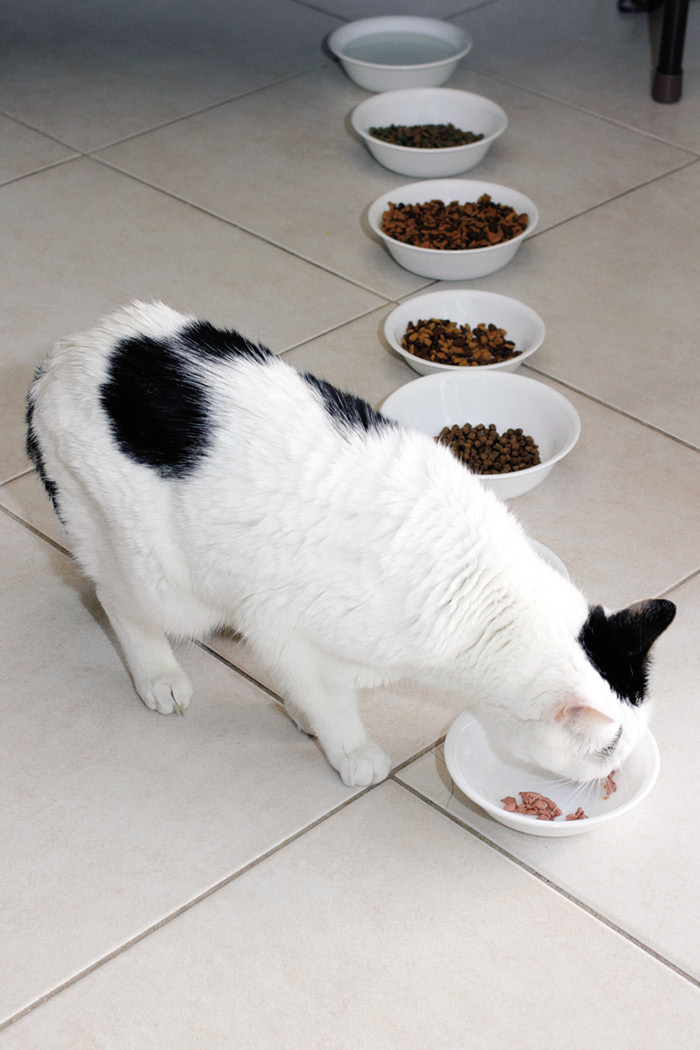We all want to keep our cats happy and healthy. Unfortunately, this desire makes it easy for marketing claims and personal beliefs to spiral out of control and create deep-seated myths and misunderstandings. Carbohydrates (carbs) and cats are one such example.
Fact: Cats Can Digest Carbs
Cats absolutely can digest carbohydrates and use them for energy and nutrition. “I really like rice due to its digestibility,” says Joseph Wakshlag, DVM, PhD, chief of Cornell University’s College of Veterinary Medicine’s Nutrition Service. Carbs are an energy source that can help keep foods affordable.
While it is true that cats also need other nutrients—including animal protein, fats, vitamins, and minerals—to survive, cats can and do digest carbs that are included in their diets.
Fact: Carbs Provide Nutrition
The primary reason that carbs are included in many cat diets is because they are an inexpensive source of energy, helping to keep food costs down for cat lovers. Carbohydrates provide the same amount of energy as protein, which is 3.5 to 4 calories per gram.
More complex carbohydrate sources often bring additional nutrients to the table, including:
- Fiber
- Antioxidants
- Omega-3 and omega66 fatty acids
- Vitamins
- Minerals
- Probiotics for a healthy gut microbiome
“Grains and other carbohydrates in pet food are not there as fillers. They actually provide valuable nutrients and properties to the diet,” says Cailin R. Heinze, VMD, board-certified veterinary nutritionist at the Cummings School of Veterinary Nutrition.
Myth: Carbs Cause Diabetes
Carbohydrates do not cause diabetes mellitus in cats. Obesity is a risk factor for developing  diabetes, but a cat can become overweight on any diet regardless of carbohydrate content. Diets touted as being “low-carb” often have a higher fat content. Fat has more calories than protein or carbs, so the same serving of a low-carb, high-fat diet may have more calories than a classic cat food.
diabetes, but a cat can become overweight on any diet regardless of carbohydrate content. Diets touted as being “low-carb” often have a higher fat content. Fat has more calories than protein or carbs, so the same serving of a low-carb, high-fat diet may have more calories than a classic cat food.
To keep your cat at a lean, healthy weight and decrease the risk of diabetes, monitor your cat’s intake by feeding measured meals throughout the day instead of leaving out a full bowl.
Food-dispensing toys and puzzles make mealtimes more interesting and encourage your cat to move around. Interactive play with balls and wand toys will also increase your cat’s exercise.
If your cat is already overweight, talk to your veterinarian about developing a safe weight loss plan. This may include switching to a low-calorie food and doing some blood testing to check for health conditions that are contributing to the weight gain.
Cat already has diabetes? This is where low-carb diets can be beneficial. Your veterinarian may recommend a low-carb diet as part of the plan to manage your cat’s diabetes and regulate her blood sugar levels. Feeding measured meals and tracking how much your cat eats will be helpful to keep her stable.
Myth: Dry Foods Are Mostly Sugar
While most commercial cat foods (dry and canned) do contain carbohydrates to one degree or another, they are not pure carbs. “The carbohydrate level of most commercial cat foods varies from about 20 to 50 percent on a metabolizable energy basis,” says Brennen McKenzie VMD in the May 26, 2022, Veterinary Practice News. “This is certainly higher than the carbohydrate content of a rodent carcass, but it is mostly complex carbohydrates and certainly not consistent with the extreme claim sometimes made that such diets are ‘mostly sugar.’”
Adult cats require a minimum of 26% of their diet to be protein. They are obligate carnivores, which means they must eat meat. They also require a minimum of 9% fat. If you stroll down the pet food aisle of your grocery store, you will find that most dry foods contain more than these minimums.
The American Association of Feed Control Officials (AAFCO) makes recommendations for animal foods. Cat foods that have an AAFCO statement on their labels are required to have at least 26% protein and 9% fat, meaning that carbs will, at most, make up approximately 65% of the diet.
Myth: Carbs Cause Food Allergies
Carbohydrates, particularly grains, are frequently scapegoated as a source of food allergies in cats and dogs. In reality, proteins like chicken, beef, and eggs are the much more likely villains. Food allergies to carbs are rare.
Bottom Line
Cats are perfectly capable of digesting carbs and thriving. The important thing is that your cat’s diet is complete and balanced, following AAFCO recommendations.



